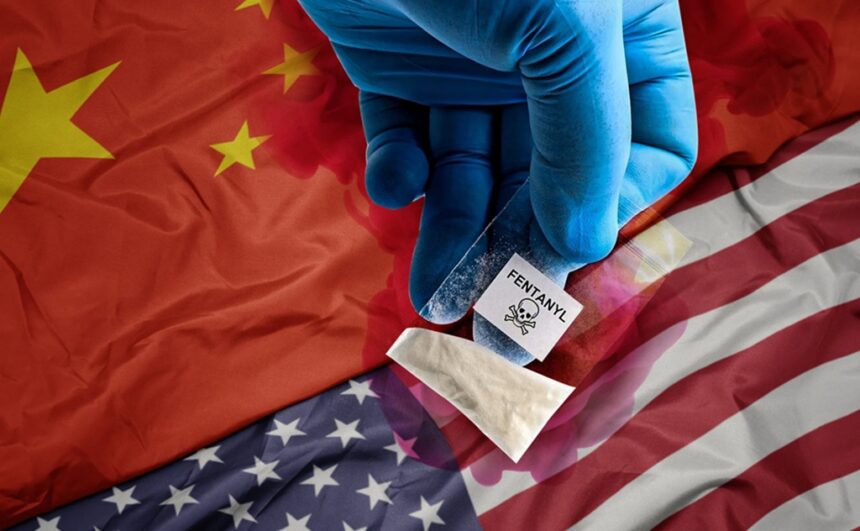China’s government has denounced Trump’s 10% tariff on Chinese imports over being the main provider of precursors to make fentanyl and other derivative compounds into the United States. Saying fentanyl is America’s problem.
At the same time that the United States is grappling with the most lethal drug epidemic in its history, with over 100,000 overdose deaths annually, the majority of which are attributable to the consumption of fentanyl, Trump has implemented tariffs on China.
Using chemical precursors imported from China, laboratories in Mexico and Canada manufacture fentanyl, a synthetic opioid that is 50 to 100 times more potent than morphine.
The finance and commerce ministries have announced that Beijing will contest President Donald Trump’s tariff at the World Trade Organization and implement unspecified “countermeasures” in response to the levy, which is set to take effect on Tuesday.
The response deviated from the immediate escalation that had characterized China’s trade dispute with Trump during his first term as president and reiterated Beijing’s more measured language in recent weeks.
Trump imposed tariffs of 25% on Canadian and Mexican imports and 10% on goods from China on Saturday, asserting that Beijing was required to halt the flow of fentanyl precursors to Mexico and Canada.
World Trade Organization
China’s commerce ministry responded that Trump’s action “seriously violates” international trade regulations. The ministry encouraged the United States to “engage in frank dialogue and strengthen cooperation.”
Beijing has also taken a largely symbolic action against the European Union’s tariffs on Chinese-made electric vehicles by filing a lawsuit with the World Trade Organization.
For weeks, Mao Ning, the spokesperson for the Chinese Foreign Ministry, has maintained that Beijing considers a trade war unwinnable.
The administration of Trump’s predecessor, Joe Biden, had also been advocating for Beijing to restrict the shipments of the China-made precursor chemicals required for the production of fentanyl, which was the subject of China’s most severe backlash on Sunday.
China’s foreign ministry declared that “fentanyl is America’s issue.” China has already conducted extensive anti-narcotics cooperation with the United States and achieved remarkable results.
Fentanyl Precursors from China
The Chinese Communist Party (CCP) is the ultimate geographic source of the fentanyl crisis, as per the House Select Committee on China.
Nearly all of the illicit fentanyl precursors, which are the primary ingredients that fuel the global illicit fentanyl trade, are produced by companies affiliated with the CCP in China.
The committee determined that companies in China manufacture virtually all of the illicit fentanyl precursors and that the smuggling is conducted through Mexico. Mexican cartels acquire fentanyl precursors in China and subsequently transport the finished product from Mexico to the United States.
Through tax rebates, the Chinese government (CCP) directly subsidises the production and export of illicit fentanyl materials.
Furthermore, it permits the unrestricted sale of fentanyl precursors on the internet and offers financial incentives to organizations that openly trade in these substances. This crisis has also solidified the status of organized criminal groups with connections to the PCC as global leaders in money laundering.
Despite US efforts and formal indictments, the Chinese government has not prosecuted precursor manufacturers or cooperated with US authorities.
The United States has requested that the CCP take action on numerous occasions. Despite the existence of names and substantial evidence implicating those responsible, Chinese actions have been inadequate.
Authorities deny responsibility for the fentanyl crisis, citing the persistent demand in the United States as the root cause, despite evidence of China’s involvement.
Related News:
FDA Approves Non-Opioid Painkiller Journavx for Acute Pain Relief

Geoff Thomas is an award winning journalist known for his sharp insights and no-nonsense reporting style. Over the years he has worked for Reuters and the Canadian Press covering everything from political scandals to human interest stories. He brings a clear and direct approach to his work.














